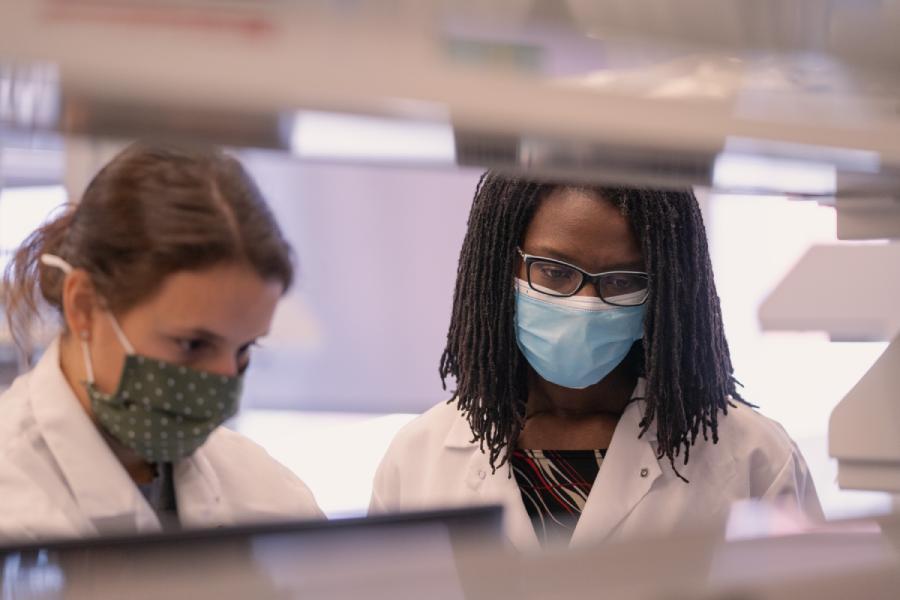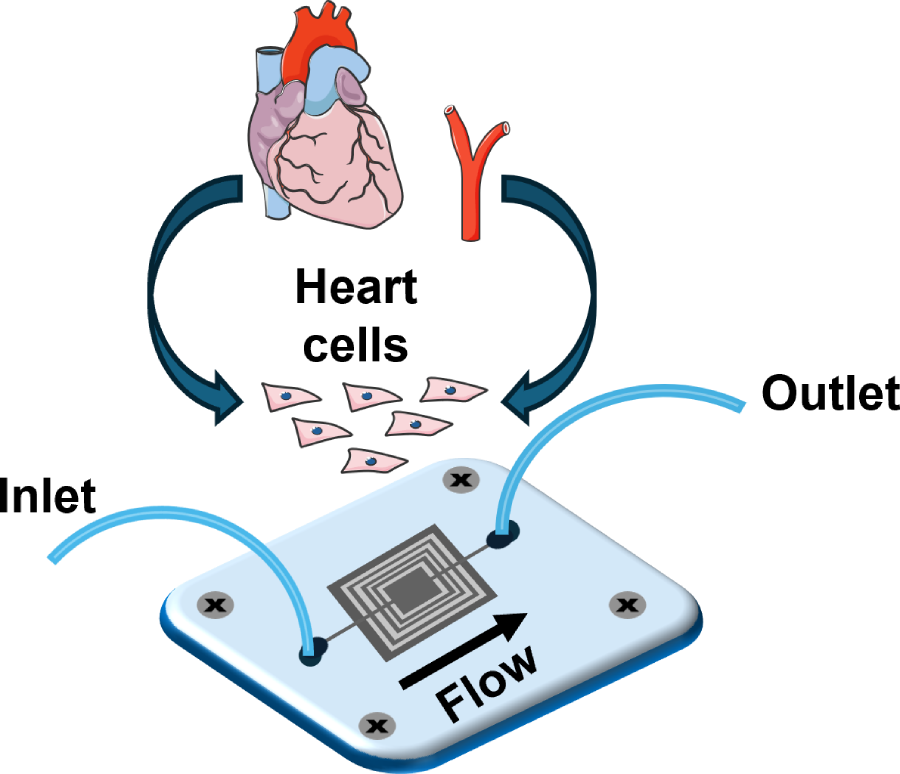Renita Horton, assistant professor in the Cullen College of Engineering’s Biomedical Engineering Department, has received a National Science Foundation (NSF) CAREER Award in the amount of $522,253 for research concerning congenital cardiac fibrosis and vascular cell dysfunction, with support through 2029.
Her proposal, titled “Congenital Heart on a Chip: Investigating Mechanical, Biomolecular, Cellular and Tissue-Level Mechanisms in Cardiac Fibrosis”, aims to investigate “how different cells in the heart respond to chemical and mechanical signals that cause cardiac fibrosis”, or the formation of scar tissue within the heart, via two- and three-dimensional chip-based models.
“Chip platforms offer benefits that live models wouldn’t necessarily be able to give us,” Horton said. “We can do quite a bit more manipulation with a chip model than we can with animals or people, so I see it becoming a more prominent mainstay when it comes to investigating complex disease processes.”
The organ-on-a-chip model allows researchers like Horton to isolate cells from whole-organs. This creates a simplified platform to better showcase potential direct effects, which can be challenging with whole organisms. These can include key processes of disease onset, many of which begin before an individual is ever diagnosed and are therefore difficult to study in their entirety.
Horton emphasizes that understanding these key cascades that can potentially have adverse effects on the heart is a critical component of improving individual outcomes when facing complex systemic disease processes. This includes what's known as “neonatal lupus”: a particular set of symptoms and effects resulting from the transfer of antibodies from a gestating parent to their fetus.
“This may allow us to answer some questions that we wouldn’t be able to answer with whole-organism models,” Horton added. “In this case, we can use our chip model to mimic the maternal-fetal environment, which allows us to really look at how what happens inside of the mother can impact what happens to the development of the fetus. We may be able to use that information to potentially identify targets to improve child outcomes.”
Horton also intends to support current and pre-service middle and high school Houston-area STEM teachers in developing tissue engineering teaching modules for their 7-12th grade students.
“Partnering with [these teachers] to create lesson plans that will eventually be executed in our local public school systems is a great experience for them, because they get to experience both the tissue engineering research side and the educational perspective all while still moving towards their teaching goals,” Horton explained.
CAREER awards are offered in support of particularly promising early-career faculty who have the potential to serve as academic role models in research and education, and to lead advances in the mission of their department or organization. Horton joined the Cullen College of Engineering as an assistant professor of biomedical engineering in January 2019.
“I want to make sure that the problems I’m tackling are impactful, and can potentially translate to clinical settings,” said Horton. “This award opens up new avenues to areas I’ve been interested in exploring and will help me establish myself further in the field and gives me freedom to tackle some tough yet interesting questions while also incorporating the training of K-12 educators.”


